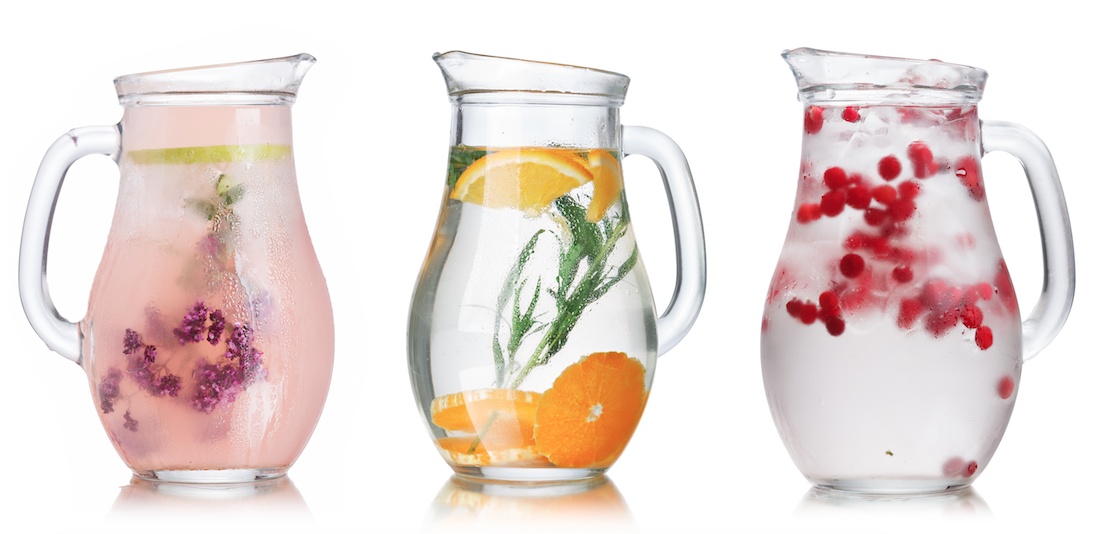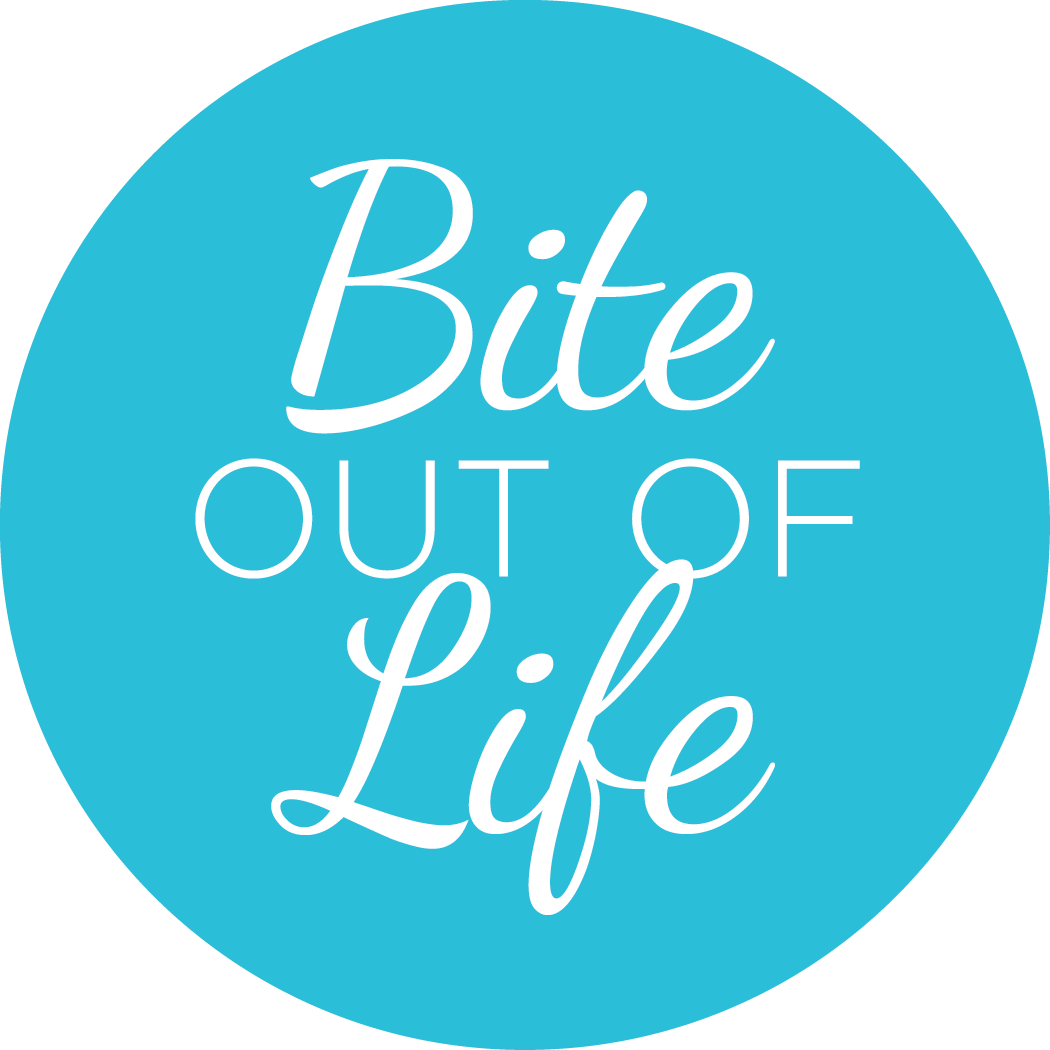
“But I’m not thirsty.” “I don’t like the taste of water.” “I can’t drink ALL that water – it makes me run to the bathroom all the time.” “Ugh, does coffee count?”
Oh yes – as a nutritionist and wellness practitioner – I hear these comments all the time when I raise the issue of hydration. When we want to make positive changes to our health and wellness, the natural inclination is to change our diet (sometimes a good thing) and get more exercise (also sometimes a good thing).
But rarely do we consider water as an essential factor in helping us feel better, improve many chronic health conditions and even look more vibrant (hydrated skin = younger-looking skin!).
Being properly hydrated can help prevent or improve myriad conditions – systemic inflammation, constipation, bloating, osteoporosis, gout, arthritis, hypertension, kidney stones, migraines, confusion and brain fog, – and the list goes on and on.
Your blood is 92% water. Your brain is 75% water, as are your muscles. We lose about 2 to 3 litres of water every single day from our regular bodily functions through elimination (pooping and peeing), respiration (breathing our water vapours) and perspiration.
So if we are not hydrating enough to replace this basic level of fluid, never mind if we are sweating more due to hotter temperatures or breathing heavily due to exercise or anxiety, our bodies are simply going to be under more dehydrative stress.
Water is needed for every cell and function in your body. And while most of us could survive without food for many weeks, we’d not make it past a few days without water. I could argue that water is the most fundamental nutrient of them all.
So, water is critical for life and health. But why then do so many of us resist the habit of hydration?
And more importantly – about how much is the right amount to drink to stay hydrated without overdoing it. (Yes – too much water in a short period of time can be harmful as well. Hyponatremia, known as water intoxication, is a condition that ‘waters down’ the electrolyte balance and can cause kidney and sometimes cardiac issues.)
You’ve probably heard conflicting opinions as to how much water to drink. Is there a magic number for everyone? What counts toward water intake?
Let’s try to sort out some of those important questions.
How much water do I need?
Once upon a time, there was a magic formula called the 8×8. This was the recommendation to drink eight-8 oz glasses of water every day; That’s about 2 litres of water.
Another typical guideline is to drink ½ ounce of water for every pound of body weight. So for example, someone who weighed 150 lbs would drink 75 ounces – or approximately 9 ½ cups – each day.
Over time, we’ve realized that imposing this external “one size fits all” rule is no more effective and realistic than taking the same “one size fits all” approach to a diet or nutrition plan.
Many wellness professionals recommend drinking according to thirst. And that’s awesome if you can tune in and pay attention to your thirst mechanism. We have complex hormonal and neurological processes that are constantly monitoring how hydrated we are. And for healthy adults, this system is very reliable.
But you need to know that because modern humans are so used to going without drinking water because we are very busy or at least very busy drinking other beverages – like coffee, tea, wine etc. – often times by the time we recognize that we are thirsty, we are well on our way to actually being dehydrated.
What colour is your pee?
A better way may be to pay attention to how dark and concentrated your urine is. The darker your urine, the more effort your body is making to hold on to the water it has.
Strive for lovely straw-coloured pee. If it’s very pale yellow or transparently clear – you are drinking too much, and too fast perhaps. If your pee is turning golden honey-coloured or even verging on light maple syrup – you are dehydrated.
There are a few other things to consider when evaluating your hydration status. Like if you’re sweating a lot, or are in a hot/humid climate, drink more. Breastfeeding moms, elderly people, and people at risk of kidney stones need to drink more water too. So do people who experience vomiting and/or diarrhea, as both can quickly dehydrate our bodies.
So, ditch the “one size fits all” external rule, and pay more attention to your body’s subtle cues for water. And sip, sip, sip versus guzzling a litre at a time. You need to give your cells a chance to uptake the water and your kidneys a chance to be able to filter it before just peeing it out.
What counts toward my water intake?
The good news is: all fluids and foods containing water contribute to your daily needs to a greater or lesser degree.
Pure filtered water is of course your best choice. And you can never substitute other beverages or foods 100% and expect to feel and look your best. Why? Because other beverages you may be drinking– whether coffee, tea, juice, sodas, sparkling water, beer, wine, smoothies etc. – in addition to including some water, all have additives or ingredients that are going to impact your body.
Sugars – those that are added, naturally occurring, and even artificial sweeteners – can mess with your blood sugar balance. Alcohol can make you feel buzzed and add a toxic load to your liver. And caffeine can keep you awake and impact your hormonal balance.
Let’s talk a bit more about caffeine for a second.
Caffeine – from coffee or tea or chocolate or cola – is the infamous “dehydrator,” right? Well, not exactly. Caffeine is definitely a diuretic and if you take high dose caffeine pills, then sure, they cause fluid loss. But the idea that coffee and tea can’t count toward your water intake is an old myth.
While caffeine in either coffee or tea may make you have to pee more, generally the effect isn’t strong enough to negate all the hydrating effects of the water it contains. Plus, if you’re tolerant to it (ie: you regularly drink it) then the effect is even less. So, you if you are a moderate (1-3 regular cups) coffee or tea drinker, you won’t need to counteract your daily intake with even more glasses of water.
So yes – you can keep hydrated by drinking other things beyond plain filtered water. But don’t rely on those 100% of the time. Water still is your best choice.
In addition to beverages, many foods also contain significant amounts of water. Especially produce like cabbage, cantaloupe, watermelon, strawberries, celery, spinach, lettuce, apples, pears, oranges, grapes, carrots, and pineapple. These foods are over 80% water, so they are good sources of hydration. And when eaten as whole foods, they have sufficient fibre in them to help balance blood sugar.
Bone broth and homemade soups (where you can control the amount of added sodium) are also options to boost your fluid intake.
So, you don’t need to count your plain water intake as your only source of hydration. All fluids and foods with water count.
So how do we best stay hydrated?
In a nutshell: there is no magic number of the amount of water you need. Everyone is different. Children, pregnant women, and elderly people need more. Episodes of vomiting or diarrhea will also increase your short-term need for more water. The most important thing to pay attention to is the colour of your urine. But also tune into your thirst and ensure that you are paying attention to how you’re really feeling. Thirst is very often mistaken for hunger, so next time you think you need to eat something…. maybe grab a drink of water first?
Water is your best source of fluids. But other liquids, including caffeinated ones, help too. Just consider the effects the other ingredients have on your health as well. And many fruits and vegetables are over 80% water, so don’t forget about them.
Recipe (Hydration): Tasty hydrating teas
You may not love the taste (or lack thereof) of plain water. One thing you can do is add some sliced or frozen fruit to your water. Since we learned that you could hydrate just as well with other water-containing beverages, here are some of my favourite herbal teas – which do not contain caffeine – you can drink hot or cold. Each have their own health-supporting properties in addition to keeping you hydrated.
- Hibiscus
- Lemon
- Peppermint
- Rooibos
- Chamomile
- Lavender
- Ginger
- Lemon Balm
- Rose Hips
- Lemon Verbena
Tips:
- When making iced tea or iced coffee, freeze more tea/coffee as ice cubes so you don’t dilute your drink.
- You can freeze berries, other fruits or herbs in your ice cubes to make your drinks both pretty and tasty.
References:
https://www.healthline.com/nutrition/how-much-water-should-you-drink-per-day
http://www.health.harvard.edu/blog/water-water-everywhere-2016110310577
http://www.health.harvard.edu/staying-healthy/how-much-water-should-you-drink
http://neurotrition.ca/blog/why-you-should-raise-your-glass-water
